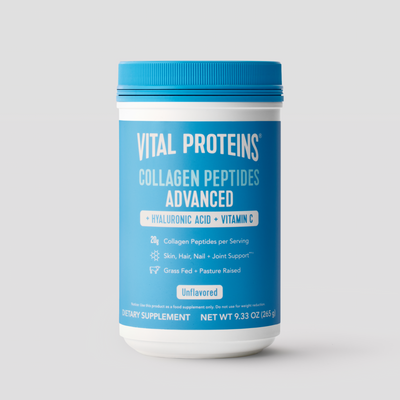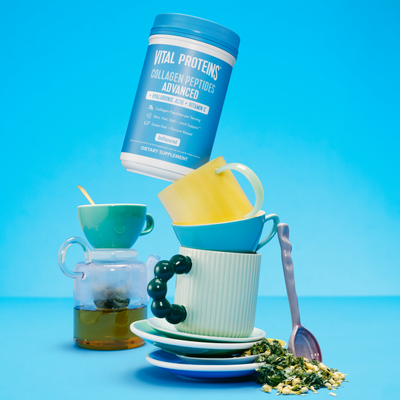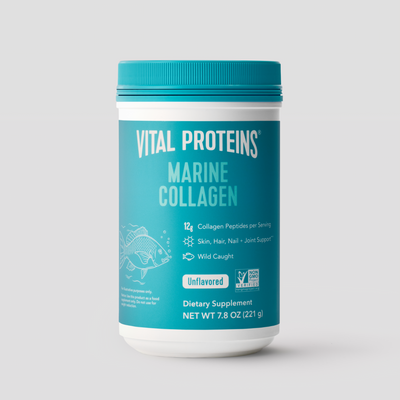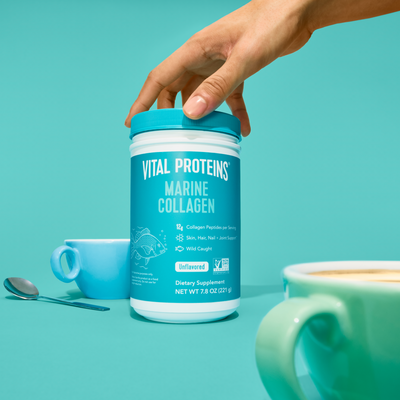You’ve heard the term before, but what areamino acids? We’re breaking down the ins and outs of these essential proteins to help you give your body what it needs to live vitally.
What Are Amino Acids And Why Do We Need Them?
Amino acidscontribute to the development of protein within the body and are vital in promoting wound repair and encouraging healthy tissue in muscles, bones, skin and hair. Amino acids are also crucial in eliminating waste deposits related to metabolism.

Foods Sources Containing Amino Acids
Out of the 22 amino acids, there are nine essential amino acids: isoleucine, leucine, lysine, methionine, phenylalanine, threonine, tryptophan, valine and histidine. Foods containing all nine of these amino acids are called complete proteins. Some of these complete proteins include:
- Eggs
- Beef
- Chicken
- Fish
- Quinoa
- Buckwheat
- Chia seeds
- Soy
- Whey
These complete proteins are essential to our overall health, which is why they are comprised of the essential amino acids. Our bodies need all nine of these essential amino acids for basic health; since our bodies cannot make them naturally, we must get them from other sources.
Can You Be Amino Acid Deficient?
Foods that lack one or more of the nine essential amino acids are called incomplete proteins, and must be supplemented with other proteins to make up for the missing amino acids. Nuts eaten on their own, for example, are an incomplete protein because they don’t have all essential amino acids (called non-essential amino acids), but when you add a balancing food that contains the missing amino acids, you get a complete protein! You might be surprised to see just how many foods we eat together that make up complete proteins. It’s as if our body know how to make smart combinations.
Food combinations that make complete proteins:
- Hummus and pita
- Oatmeal and almond butter
- Rice and beans
- Peanut butter and bread
- Lentils and rice
Non-essential amino acids are proteins that our body can naturally produce on its own. Non-essential amino acids play an integral role in removing toxins from the body, supports metabolism, encourage healthy digestion, and aid in promoting healthy body tissue. The non-essential amino acids include cysteine, alanine, proline, serine, asparagine, glutamic acid, tyrosine, arginine, aspartic acid, glutamine.

To ensure you’re getting complete protein into your diet, a supplement can help. Vital Proteins Banana Cinnamon Collagen Whey or Bone Broth Collagen available inChickenorBeef are three products that contain all nine essential amino acids while providing collagen protein that supports healthy hair, skin, and nails, aids in muscle recovery, and promotes bone and joint health.**
Benefits Of Amino Acids Supplements
Amino Acids & Youthful Skin**
Studies have shown that amino acids, like glutamine, can contribute directly to healthy hair and skin by supplying essential nutrients to strengthen connective tissue that supports skin elasticity, and hair and nail strength. Glutamine, a non-essential amino acid, is vital in maintaining skin health, however, our bodies produce it more slowly as we age. Since glutamine regulates the acid-base balance, it can support skin firmness.
Two amino acids in particular – arginine and carnitine – form creatine, which supports natural skin functions that ultimately produce collagen and elastin through cells that can repair damaged DNA. The formation of collagen through creatine is important because connective tissue is protected and contributes to strong tendons, cartilage, and ligaments. Healthy skin is reliant on the formation of collagen in order to replenish moisture which reduces fine lines, increases elasticity, and increases skin smoothness.
Amino Acids & Weight Management**
Studies have shown that high-protein foods help people feel fuller, longer, as opposed to foods heavy in carbohydrate or fat content, ultimately reducing overeating. A majority of carnitine, a non-essential amino acid, is found in the muscles. Carnitine has been shown to supply oxygen to muscles, which can aid in exercise recovery.
One of glutamine’s claim to fame is improving gut health, but glutamine can also be converted to glucose without affecting the body’s glucagon and insulin counts. This enhances the energy supply while passing up fat storage caused by insulin. Essentially, glutamine protects your body from storing sugars and fats, allowing you to feel more energized and alert.
Amino Acids & Muscle Development**
Amino acids are essential for the growth and development of muscles. Methionine, one of the nine essential amino acids, has been shown to promote the production of creatine, which aids in the development of muscle mass, while lysine can help muscles recover after extensive movement.
One study showed that rats that were given essential amino acid supplements experienced increased muscle development, as well as bone mass and strength. This was due to increased calcium absorption within the bones as a result of the amino acid supplement.

What Amino Acids Does Collagen Have?
Sourcing
First and foremost, the proteins come from different sources. whey protein is derived from milk, while collagen protein is derived from bovine hide. Every protein you consume contains different amino acids, which are the building blocks of the protein. Since collagen and whey are proteins derived from different sources, they contain different amino acid profiles, which gives them different functions in our body.
Function
Collagen is high in three amino acids that are lacking in your plant protein, whey protein and muscle meat proteins. These amino acids are glycine, proline and hydroxyproline. By consuming collagen, you are getting the amino acids your body needs to properly build collagen, which is a fibrous protein that provides the strength and structure to our body. It is the protein that keeps our skin firm, hair and nails strong, and our bones and joints healthy.**
What are these functions, you ask? Whey protein is a fast-digesting, complete protein that’s great for building muscle and is typically used before or after exercise because it is quickly absorbed by the body and contains Branched-Chain Amino Acids (BCAA). BCAA are key amino acids that your body needs for muscle synthesis. Proteins like meat, fish, eggs and dairy are the best sources of BCAA, so for most people eating a well-balanced diet, they are already getting enough of these amino acids and don’t need to supplement with a whey protein powder.
why collagen is important
Collagen is the main protein making up our body. Our bodies naturally produce collagen; however, as we get older, our collagen production declines. This is why as we get older we often experience less joint mobility, have brittle bones and wrinkling skin, as well as weaker hair and nails. If our bodies are less efficient at producing collagen, then we need to consume it through our diet. Unfortunately, collagen has typically been removed from today’s diet since we no longer consume all body parts of animals through homemade bone broths or eat organ meats like our ancestors once did. That’s whyVital Proteins' collagen supplements are an easy way to get this healthy protein in your diet to help you look and feel your best as you get older!

















